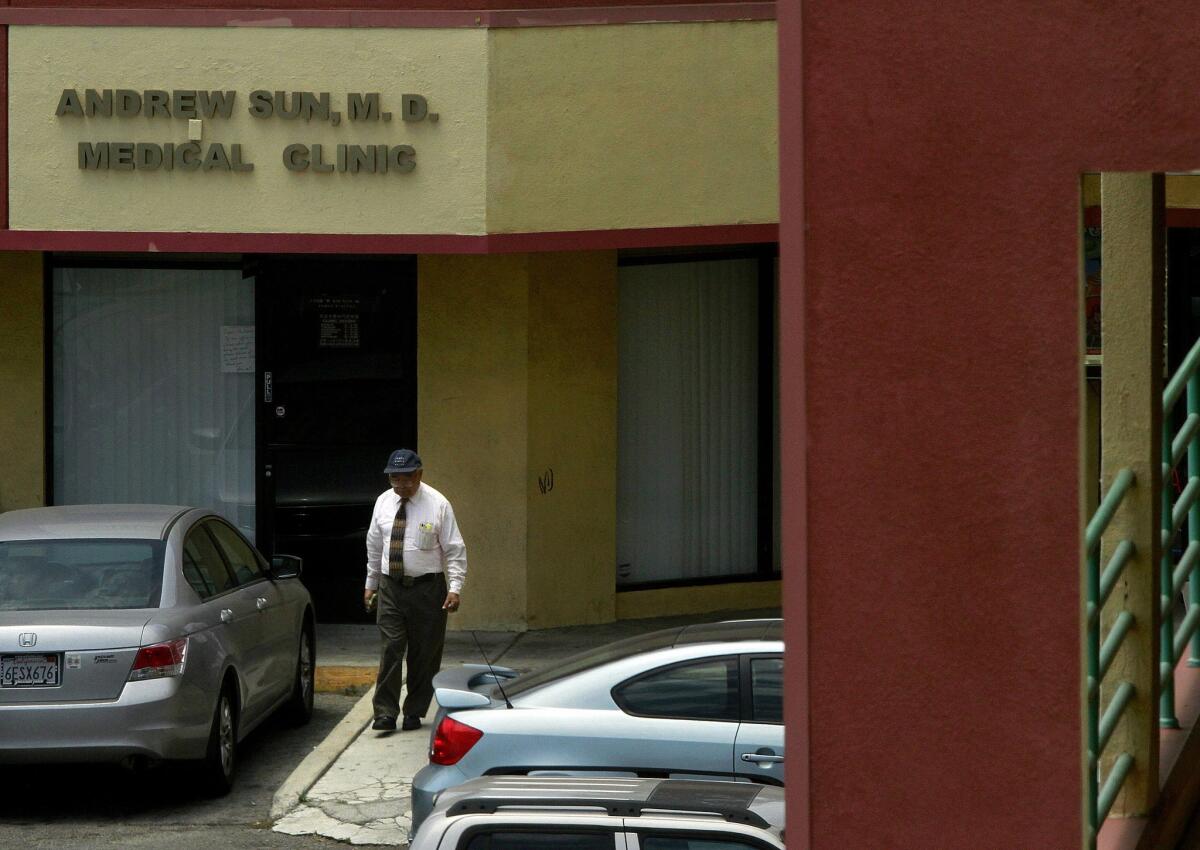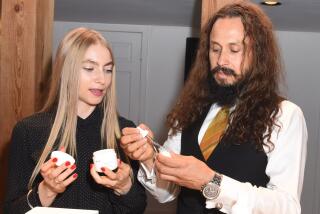Doctor gets 5 years in prescription drug case

- Share via
The patient made it clear why she was asking the veteran doctor for the powerful, addictive painkiller Vicodin: “I like the way it makes me feel.”
The septuagenarian doctor did not appear particularly concerned.
“So you are just using that for fun, huh?” Dr. Andrew Sun responded.
Within minutes, he wrote her a prescription for 30 pills of the painkiller along with the anti-anxiety medication Xanax. He had her initial a line saying the drug was for pain caused by sciatica, not realizing that she was an undercover investigator.
The prescription was one of 24,000 written by Sun over a three-year period, 90% of which were for the same powerful cocktail of two drugs often sought by addicts, according to federal prosecutors.
On Monday, the 79-year-old doctor was sentenced by a federal judge to more than five years in prison for his conviction last year on 14 counts of narcotics distribution.
Prosecutors had sought a sentence of nearly 20 years, arguing that doctors like Sun, who pocketed $1.1 million in cash through his operation, have fueled a nationwide prescription drug problem that the U.S. Centers for Disease Control and Prevention calls an “epidemic.”
“There is extraordinary need to deter this type of conduct,” prosecutors wrote in sentencing papers, asking that Sun be sentenced to at least 15 years. Sun, they contended, “demonstrated a near-sociopathic disregard for [patients’] well-being, choosing to literally fill his pockets with cash.”
They cited experts who testified at Sun’s trial that five of his patients had died from overdosing. Among those patients were two brothers in their early 20s and a man who received prescriptions from Sun for two years, filling his last one two weeks before his death. They also noted that Sun, who ran clinics in San Gabriel and East Los Angeles, had been previously disciplined by the state medical board for the same conduct but continued to prescribe.
Sun’s attorneys asked for leniency and possible house arrest, pointing to his long career and service in the Air Force. They argued that Sun genuinely believed he was working for his patients. He told probation officials after his conviction: “All I do is to try my best to help my patients. I never had any intention to break the law, and I don’t understand why the jury found me guilty.”
His attorneys said his behavior appeared to change abruptly around age 70, suggesting that senility may have been a factor. The physician never lived extravagantly, often wearing clothes from Costco or Wal-Mart, Sun’s attorneys and family members told the judge in court papers.
Twitter: @vicjkim
More to Read
Sign up for Essential California
The most important California stories and recommendations in your inbox every morning.
You may occasionally receive promotional content from the Los Angeles Times.










